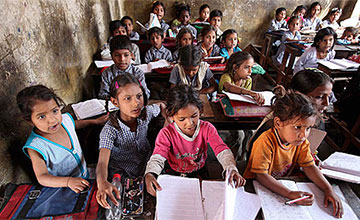- Home
- Our Programmes
Our Programmes
HEALTH
“He who has health has hope; and he who has hope has everything” – Arabic proverb
India has made rapid strides in the health sector since independence. However, various eye opening data from NFHS clearly indicate that access to healthcare still remains a challenge.
While the health statistics of rural India continue to be poor, the health status and access to health for the poor in urban slum dwellers has surfaced to be equally deplorable. Despite accounting for 1/4th of the country’s poor population, urban areas have less than 4% of government primary health care facilities.
The neglect in even the simplest preventive medical treatment usually leads to a more serious ailment and eventually into deaths. The need of the hour is thus a two pronged approach – first to bring quality health care services to doorsteps of the needy and second to promote healthcare awareness and contemporary health care seeking behavior among the underprivileged.
In such a scenario a mobile health care services delivery system is the most practical mechanism. And in subscription to this view, This is a unique mobile hospital programme that seeks to address problems of mobility, accessibility and availability of primary health care with a special focus on children and women, in urban slums and remote rural areas.
87
Projects done
55
Happy clients
67
Projects in Progress
84
Upcoming Projects
EDUCATION PROGRAMMES
Mission Education is a national level programme of AKHIL BHARTYA CHHAT MAIYA SANSTHAN, which is committed to providing basic education and healthcare to underprivileged children. AKHIL BHARTYA CHHAT MAIYA SANSTHANbelieves that whether you are addressing healthcare, poverty, population control, unemployment or human rights, there’s no better place to start than in the corridors of education.

HEALTH PROGRAMMES
“He who has health has hope; and he who has hope has everything” – Arabic proverb India has made rapid strides in the health sector since independence. However, various eye opening data from NFHS clearly indicate that access to healthcare still remains a challenge. While the health statistics of rural India continue to be poor, the health status and access to health for the poor in urban slum dwellers has surfaced to be equally deplorable. Despite accounting for 1/4th of the country’s poor population, urban areas have less than 4% of government primary health care facilities.

ORPHAN AND POOR GIRLS MARRIAGE
As humanity is the creation of God, the same as the God also created the tradition we know by the name of Sacred Relationship. But, as we know that in our society marriages are mean to be a very sacred thing and each religious faith has nuptial traditions and practices — including standard wedding vows — that have been passed down through generations. As we all know that in Indian the traditions wedding ceremonies are elaborated and complex, similarly the money and marriage goods are also necessary and are required in the arrangement of bonding two souls.

